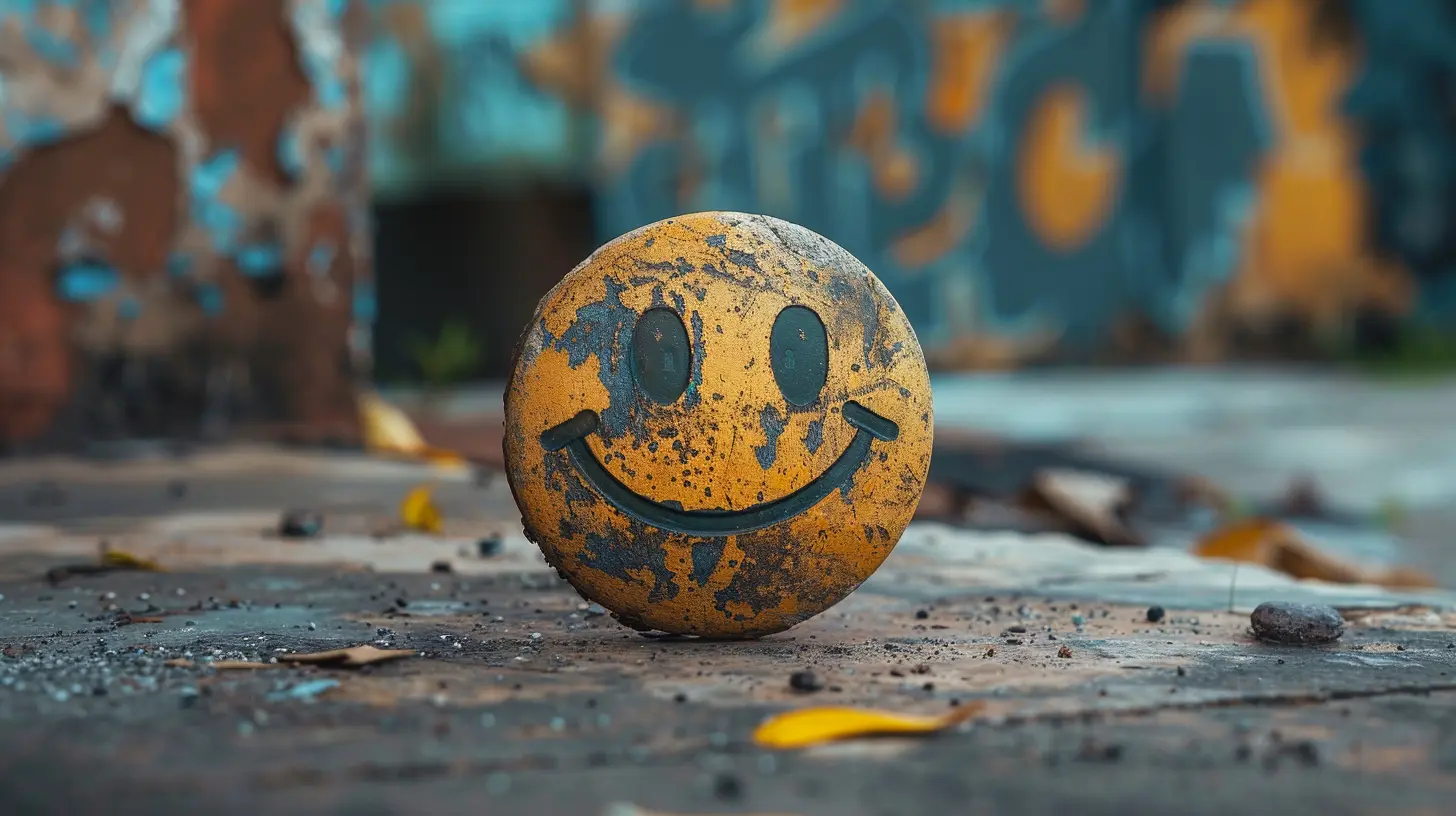How to Cultivate Emotional Resilience in Challenging Times
26 August 2025
Let’s be real—life doesn’t come with a manual, especially when chaos hits. Whether it’s a sudden job loss, a painful breakup, or just the daily grind turning into one big emotional rollercoaster, tough times are part of the human experience. But here's the good news: how we deal with those tough times? That’s something we can actually work on.
Emotional resilience isn’t about bottling things up or pretending everything’s fine when it’s not. It’s about bouncing back without breaking. Think of it as your emotional immune system—the stronger it is, the better you handle life’s curveballs.
So, how the heck do you build that kind of inner strength? That’s exactly what we’ll dive into. You don’t need to be made of steel. You just need the right tools, mindset, and a bit of self-compassion.
What Is Emotional Resilience, Really?
Let’s start with the basics. Emotional resilience is your ability to cope with stress, adversity, and trauma. It doesn’t mean you never feel sad, angry, or overwhelmed—it means you know how to navigate those emotions in a healthy way.Imagine a tree in a storm. The wind is harsh, the rain is pouring—but the roots are deep, and the tree doesn’t snap. That’s resilience. You bend, you sway, but you don’t break.
Some people are naturally more resilient than others, but (and here’s the kicker) resilience is absolutely something you can build over time.
Why It Matters More Than Ever
Let’s be honest—the world’s been a bit of a mess lately. Global pandemics, political unrest, financial uncertainty... it’s enough to make anyone feel like they’re coming undone. That’s why emotional resilience isn’t just a nice-to-have; it’s essential.When times get tough, resilient people:
- Adapt more easily
- Maintain a sense of control
- Avoid long-term burnout
- Stay connected with others
- Keep growing instead of shutting down
Sounds like emotional superpowers, right? Let’s figure out how to get you there.
1. Start by Naming What You’re Feeling
You can’t manage what you don’t understand. That’s where emotional awareness comes in. So often, we say we’re “fine” when under the surface, we’re anything but.Take a second. Pause. What are you really feeling? Anxious? Frustrated? Lonely? Defeated?
Labeling your emotions helps demystify them. It’s like shining a flashlight into a dark room—suddenly, things don’t feel quite so scary.
Pro tip: Keep a journal. Even jotting down a few lines about your emotional state each day can help you track patterns and find clarity.
2. Reframe Your Inner Dialogue
You know that voice in your head? The one that says, “You can’t handle this,” or “This always happens to me”? Yeah, that voice needs a makeover.Your thoughts shape your reality. If you’re constantly feeding yourself negative self-talk, your brain starts to believe it. But the cool part is—you can interrupt that cycle.
Instead of saying, “Why is this happening to me?” try asking, “What is this teaching me?”
It’s not about toxic positivity. It’s about shifting from victim mode to growth mode. Because even in pain, there’s often a lesson trying to get your attention.
3. Strengthen Your Support Network
Here’s a myth we need to bust: Resilience doesn’t mean going it alone.The strongest people aren’t the ones who white-knuckle their way through adversity—they’re the ones who reach out. Whether it’s a best friend, a therapist, or a support group, having someone to talk to can be the emotional oxygen you need when you’re gasping for air.
Think of your support system as your emotional safety net. When you fall (and you will, because you’re human), they help you bounce back faster.
4. Embrace Healthy Habits That Build Mental Stamina
Let’s not sugarcoat it—when life’s falling apart, self-care can feel like a luxury. But it’s not. It’s survival.You don’t need a 3-hour morning routine or a private yoga coach to stay grounded. Building emotional resilience comes down to the small, consistent practices you weave into your life:
- Sleep like it matters: Because it does. Emotional regulation tanks when we’re sleep-deprived.
- Move your body: Exercise releases endorphins, which are like natural mood boosters.
- Eat food that fuels you: Blood sugar crashes and emotional meltdowns? Not a great combo.
- Limit the doomscrolling: News is important. But constant exposure to negativity? Not helpful.
These habits are like charging your phone overnight—you wake up more ready to face the day.
5. Lean Into Mindfulness and Meditation
You don’t need to sit cross-legged on a mountaintop to practice mindfulness. It's simply about being present—fully, intentionally, and without judgement.Try this: Take 60 seconds to breathe deeply. Notice the air coming in. Feel your chest rise and fall. That’s it. You just practiced mindfulness.
The regular practice of mindfulness has been proven to reduce stress, improve focus, and build resilience. It’s like giving your mind a mini-vacation from all the chaos.
Apps like Headspace, Insight Timer, or even YouTube have tons of guided meditations to try. No pressure—just presence.
6. Make Meaning Out of Struggles
This might sound crazy, but hear me out: Our deepest pain can hold the seeds of our greatest growth.Viktor Frankl, a Holocaust survivor and psychiatrist, once said, “When we are no longer able to change a situation, we are challenged to change ourselves.”
Sometimes, the suffering we endure opens us up to new values, deeper relationships, or fresh purpose. It’s not about romanticizing pain—it’s about choosing to grow through it, not just go through it.
You might ask yourself:
- What has this challenge taught me about myself?
- How can I use this experience to help others?
- What strengths did I discover that I didn’t know I had?
From hardship comes meaning. And from meaning comes resilience.
7. Set Small Goals and Celebrate Tiny Wins
When everything feels like a mess, the big picture can be overwhelming. Instead of trying to fix everything all at once, zoom in.Set small, doable goals. Something like:
- “Today, I’ll take a walk.”
- “I’ll call a friend after work.”
- “I’ll write down one good thing that happened today.”
Tiny wins may seem insignificant at first, but they build momentum. They remind you that you’re making progress, one step at a time.
Every brick you lay is building a stronger foundation. Don’t discount the power of the small stuff.
8. Accept What You Can’t Control
Let’s be honest—so much of life is outside your control. Weather, traffic, pandemics, other people’s behavior... the list goes on.And fighting reality? That’s exhausting.
That’s where acceptance comes in. That doesn’t mean rolling over and giving up; it means acknowledging the things you can’t change and focusing your energy on what you can.
Think of it like steering a boat. You can’t control the waves, but you can adjust your sails.
When you stop resisting what is, you create space for peace to enter.
9. Practice Gratitude (Yep, Even Now)
It might sound cheesy, but gratitude really does rewire your brain. When practiced regularly, it shifts your focus from what's wrong to what’s still good.And no, you don’t need to pretend everything’s perfect. Gratitude can exist right alongside pain.
Try writing down three things you’re thankful for each day. They can be big or small—"my morning coffee," "a smile from a stranger," or "I made it through today."
Gratitude is like a flashlight—it guides your mind toward light, even in the darkest times.
10. Be Kind to Yourself (Seriously)
This one may be the hardest of all. When life gets tough, we often turn inward—and not always in a kind way. We beat ourselves up, blame ourselves, and hold ourselves to impossible standards.But here’s the truth: You’re doing the best you can with what you’ve got.
Self-compassion isn’t weakness. It’s courage. It’s saying, “I messed up, but I’m still worthy.” It’s giving yourself the grace you’d offer a friend in the same situation.
Talk to yourself like someone you love. Your inner voice should be a source of comfort, not cruelty.
Final Thoughts: You’re Stronger Than You Think
Here’s what I want you to remember: Emotional resilience isn’t about having all the answers. It’s not about being unaffected by pain. It’s about staying connected to yourself—even when everything around you feels like it’s falling apart.It’s about riding the emotional waves and trusting that, in time, they’ll settle. You may not be able to predict the storms, but you can learn to sail through them without losing your sense of self.
You’re stronger than you think. And every time you choose growth over despair, compassion over criticism, and connection over avoidance—you’re building that strength, brick by brick.
Tough times don’t last, but resilient people? They do.
all images in this post were generated using AI tools
Category:
Emotional GrowthAuthor:

Gloria McVicar
Discussion
rate this article
1 comments
James Gonzalez
Thank you for addressing such an important topic. Cultivating emotional resilience is essential, especially during challenging times. Your insights provide valuable tools for navigating difficulties and fostering strength within ourselves. Remember, it's okay to seek support and take small steps toward healing and growth. We're all in this together.
September 19, 2025 at 2:38 AM

Gloria McVicar
Thank you for your thoughtful comment! I'm glad you found the insights helpful. Remember, taking small steps and seeking support are key to building resilience. We're definitely in this together!


